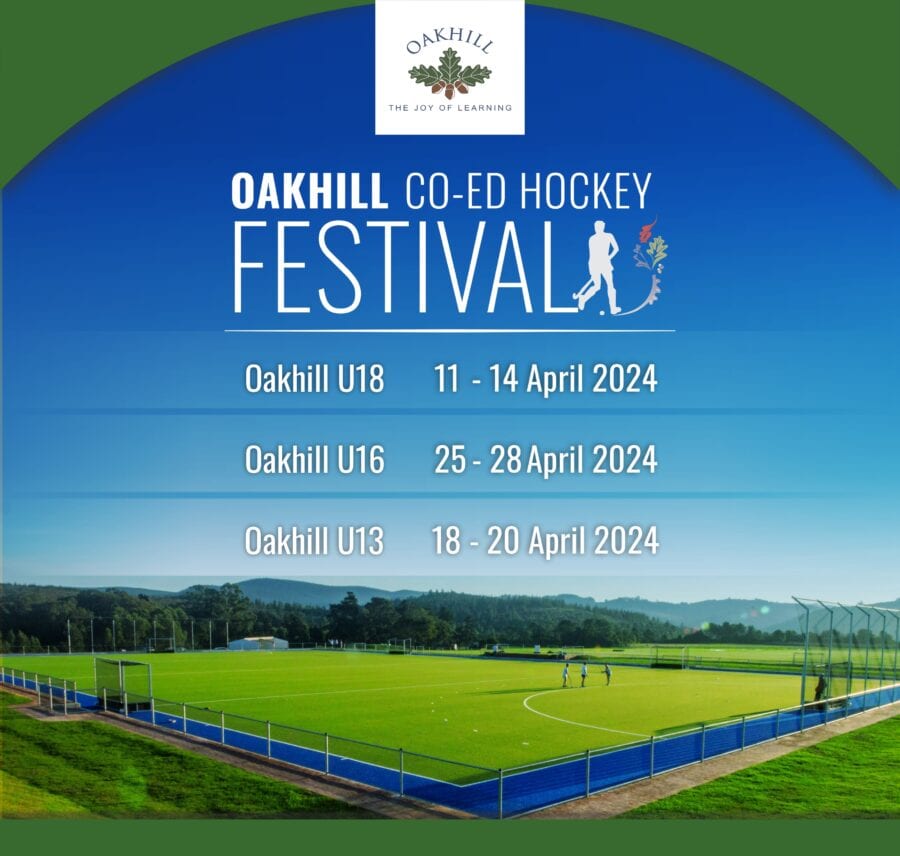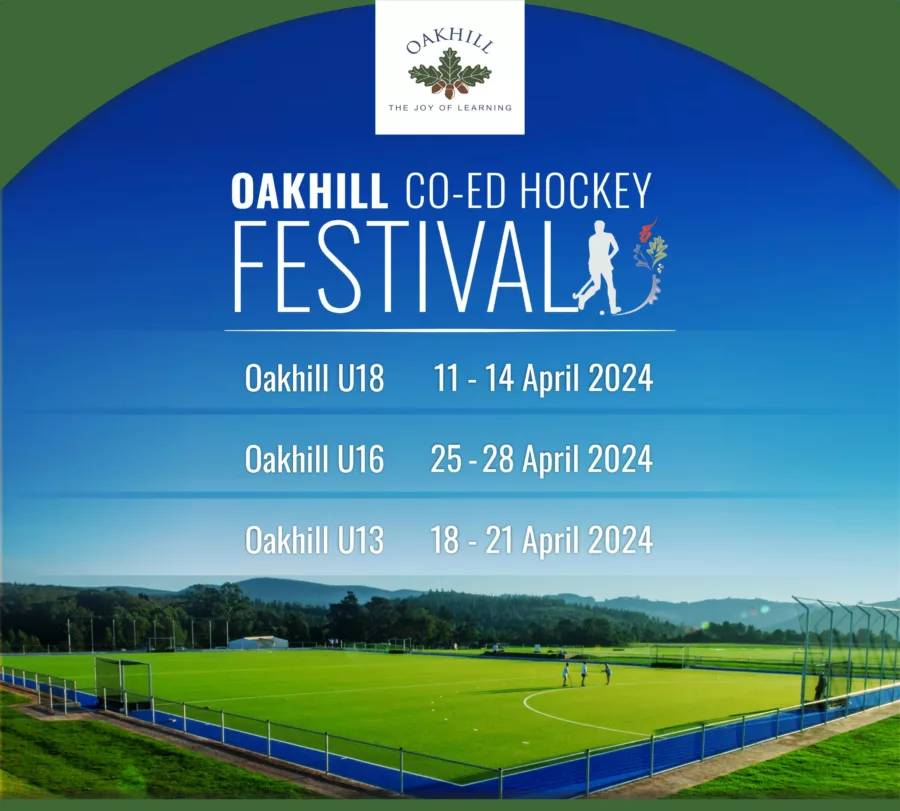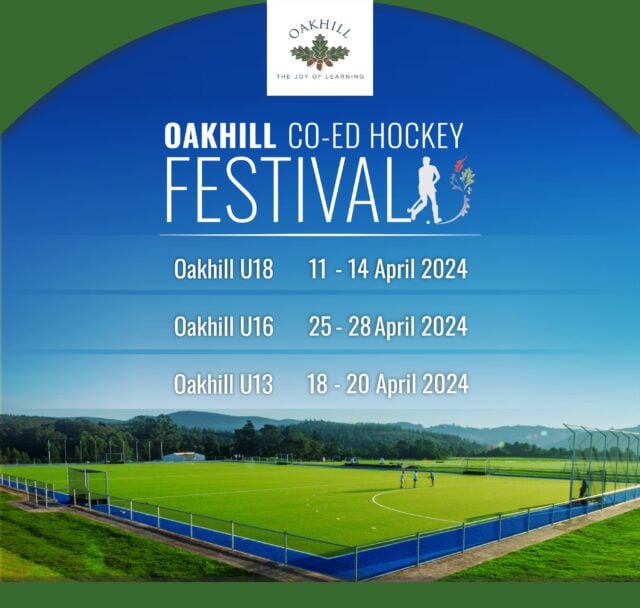Dear Oakhill Parents and Friends
The first term lies behind us and it is quite astonishing to note how much was learnt, experienced and achieved in the ten weeks it has spanned. The next ten are excitedly anticipated, as the school calendar reveals that we are in for a treat of academic, sport and cultural delectables in term two.
Growth Mindset
We made the decision, at the end of last year, to be more deliberate in fostering a Growth Mindset in everything we do at Oakhill. We started this year with a conference for our teachers on Growth Mindset, which was an enriching and thought-provoking experience. I was encouraged by the buy-in from our teachers, coaches and pupils who took this concept on board and applied it in the areas of their involvement in school life. The Grade 7s did a brilliant assembly presentation on Growth Mindset which brought the concept home to the Prep students.
Growth Mindset is not merely a synonym for optimism; it is a mindful approach to anything of significance that we are trying to achieve. We all know that such pursuits seldom follow paths with moonshine and roses. One cannot pursue a Growth Mindset if you are not prepared to step out of your comfort zone, take risks and be willing to learn from mistakes. With a growth mindset, we don’t say, ‘we have arrived’ when we succeed or ‘we have failed’ when we don’t – instead the matra of a growth mindset is ‘NOT YET’.
When I consider the first term’s highlights that are celebrated on our school website, I am proud, not only of the variety of our pupils’ achievements, but also of the way in which our growth mindset has shone through in these. It was a major factor in the success of the U14 girls hockey team that won the Outeniqua hockey festival against all odds, of the Prep Lit Quiz team that clinched silver in the national finals, of the Grade Tens who completed their 378 km, 21 day Odyssey journey and of Aimee Canny’s world class performance at the SA National Junior Swimming Championships where she achieved five golds, a silver and a bronze, topped off with three Junior World Champs qualifying times. It most certainly played a role in the excellent matric results that were achieved.
Not mentioned on our website is how a growth mindset has helped our Little Oaks to let go of mom’s hand in the morning, the Grade Ones to master writing their first sentences, the Grade Eights to negotiate their first term of high school, and the Matriculants to cope with the high stakes and pressure of their daunting academic workload.
In an era of uncertainty and instability, no matter where you find yourself on the planet, a growth mindset is an essential attitude in encouraging the notion of lifelong learning – a way of life that will become as important for sustaining us in the 21st century as breathing has been up to now.
Diversity … inclusiveness … transformation
We have also decided to look more deliberately into the notions of diversity and inclusiveness in our school. One important observation to me is that one cannot possibly value diversity and inclusiveness without a willingness to transform. Embracing difference cannot be sincere without considering change with a growth mindset.
We kicked off term two with a seminar on neurodiversity and inclusive education, facilitated by Jeandre Cooke who has done groundbreaking work in this field in South Africa and the UK. Jeandre helped us to better understand neurodiversity and inclusive education and demonstrated strategies that could assist us in teaching the way individuals learn, rather than insisting that they learn the way we teach. It was fascinating, inspiring and daunting at the same time. The truth is that this philosophy is indeed a core value in our teaching approach at Oakhill that we want to strengthen and refine.
Instead of trying to explain in words what we are striving for, I decided rather to illustrate this with a diagram (as one could do in an inclusive class where written text might be a barrier to some students’ learning).
Are we still playing?
You might have picked up recent discussions in the media around the growing concern about inappropriate behaviour of parents and supporters at sports events. It has reached the point in some of the bigger schools where parents are now required to sign codes and pledges in which they commit to appropriate behaviour. I find it a bit sad that this becomes necessary and most certainly never want Oakhill to go this route. However, we would not be entirely honest to suggest that we are consistently appropriate in our example ‘on the pavilion’, so I would like to reflect on this for a moment.
One of the special joys of educating young people is experienced when observing the personal growth of children outside the classroom – on the sports field and the stage – and supporting them in those moments when they bravely face the opposition or audience. In such moments we as parents, coaches and teachers are often so completely immersed in our desire to see them succeed that we are at risk of losing perspective and saying or doing something that our child wishes we never did.
The real magic of sport is that we PLAY it. Similarly, we call a stage production a PLAY and a sports match a GAME. Even at the highest professional level, athletes and performers advise over and over again that we should never lose sight of the playfulness that gives soul to these activities. I love this quote from Sue Wicks who is a highly celebrated Women’s League basketball professional: “I think sportsmanship is rooted in knowing that it is a game…”
There is a lot we can draw from this notion that can help our children who play, and those who cheer them on, to make the most of the experience without killing the joy. How do we check that we are still playing? Firstly, we ask, ‘Are we having FUN?’ This does not mean that every moment in the ‘arena’ should be pleasurable, but also includes growing through adversity and experiencing the joy of delayed gratification. Defeat, a setback or non-selection today could become an important stepping stone towards enabling victory the next time.
Dr. Beau Lotto is a globally renowned neuroscientist who has done groundbreaking research in education, specifically around the importance of PLAY in the learning process. He mentions that “Play is one of the only human endeavours where uncertainty is actually celebrated. Uncertainty is what makes play fun.” Lotto says that humans are at their most creative when they play because the uncertainty in the game is accepted and therefore mistakes and getting stuck is expected. Play almost always holds an element of surprise which makes it exciting.
How does this relate to the school sports field or stage? I think it speaks to that uncertain moment when the whistle blows, the curtain opens and coaches and parents take a step back from the players… when the ball is literally ‘in their court’. This is when we on the touchline and in the audience need to be sure about our role, especially when the game takes a turn against our player, performer or team. If we interfere at this point, the magic of ‘play’ is lost and a learning opportunity with it. Often, when it is our natural instinct to get involved, it is NOT the most helpful action we could take. This is the hardest when our loyalty to our little champion or the team is being challenged by either foul play, weak officiating or poor decisions that happen in front of our eyes. Haven’t most of us as parents or coaches ‘lost it’ at some or other time and said something in the heat of the moment that left us regretful? I know I’ve been there!
One of our sports principles at Oakhill is, “We play to win; but not at all costs.” We will not cheat to win and most certainly will not trade our sportsmanship for victory. We repeat this principle often and in many ways to Oakhill players and I know that parents support us in this.
Behind the scenes, we as coaches and teachers commit to adhere to a few practical guidelines and I would like to share some of these with parents, to keep in mind when we are supporting:
- Focus on the child’s efforts and performance rather than the overall outcome of the event. This assists the child in setting realistic goals relating to his/her ability by reducing the emphasis on being the best.
- Teach children that an honest effort is as important as victory, so that the result of each game is accepted without undue disappointment.
- Encourage children to always respond according to the rules.
- Refrain from ‘touchline coaching’.
- Never ridicule or shout at a child for making a mistake.
- Remember children are involved in sport/productions for their enjoyment and growth, not ours.
- Acknowledge good play by both teams and a good call either way.
- Support all efforts to remove verbal and physical abuse from sporting activities.
- Never blame defeat on poor/unfair officiating; follow due protocol to report or address it. We can’t control poor officiating in the moment but we can control how we play/react in the moment, which always has more influence on the game than officiating.
- Teach players to be humble in victory and dignified in defeat.
In closing, an adaptation of a quote by Winston Churchill which speaks to all the topics upon which I reflected in this letter: “Success is not final, failure is not fatal: it is the courage to continue that counts.”
Wishing every Oakhillian a happy and productive second term!








